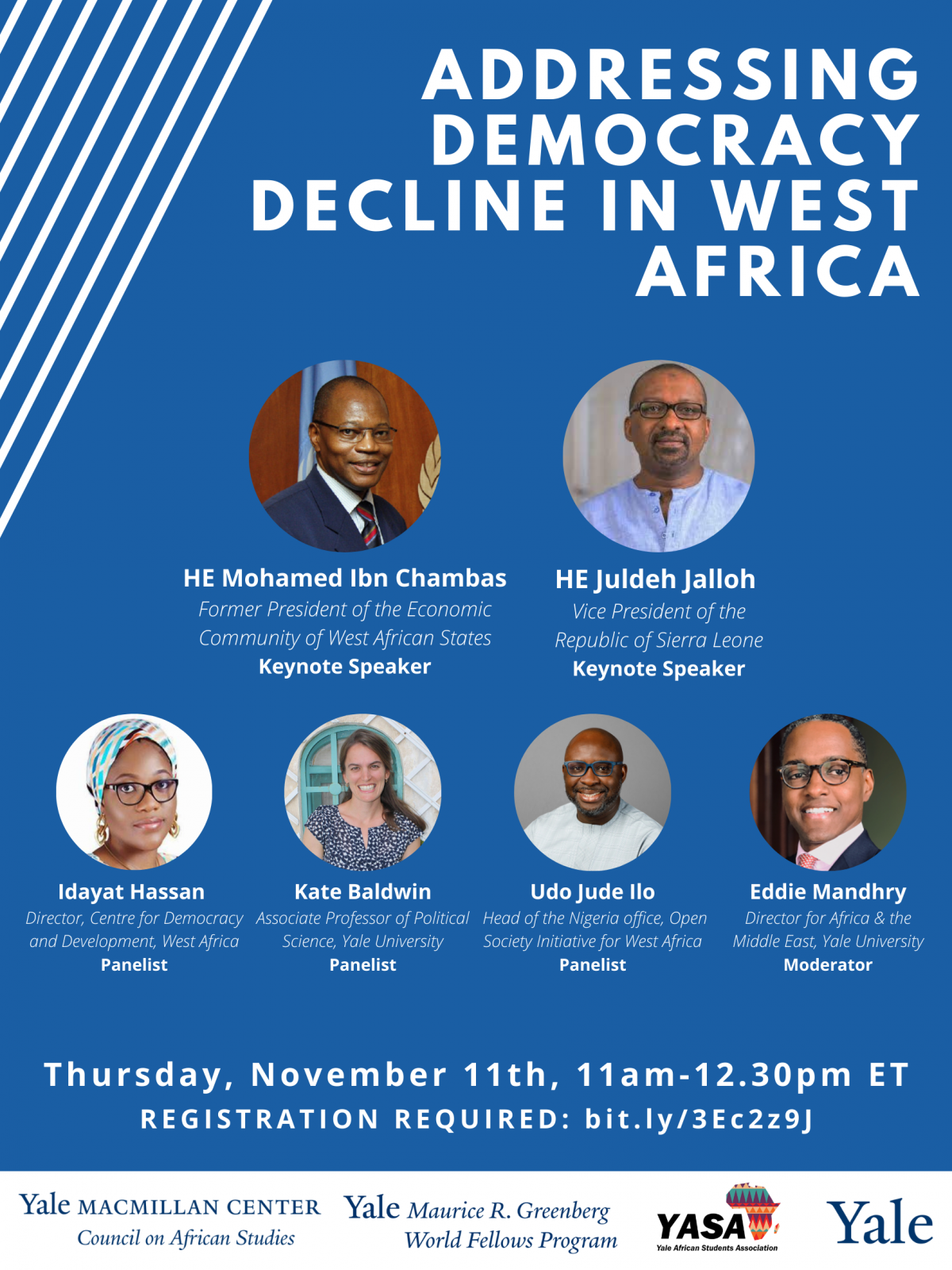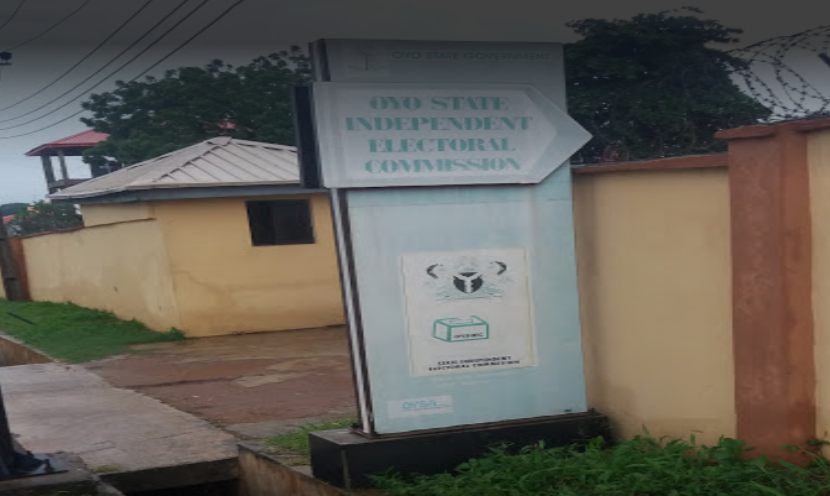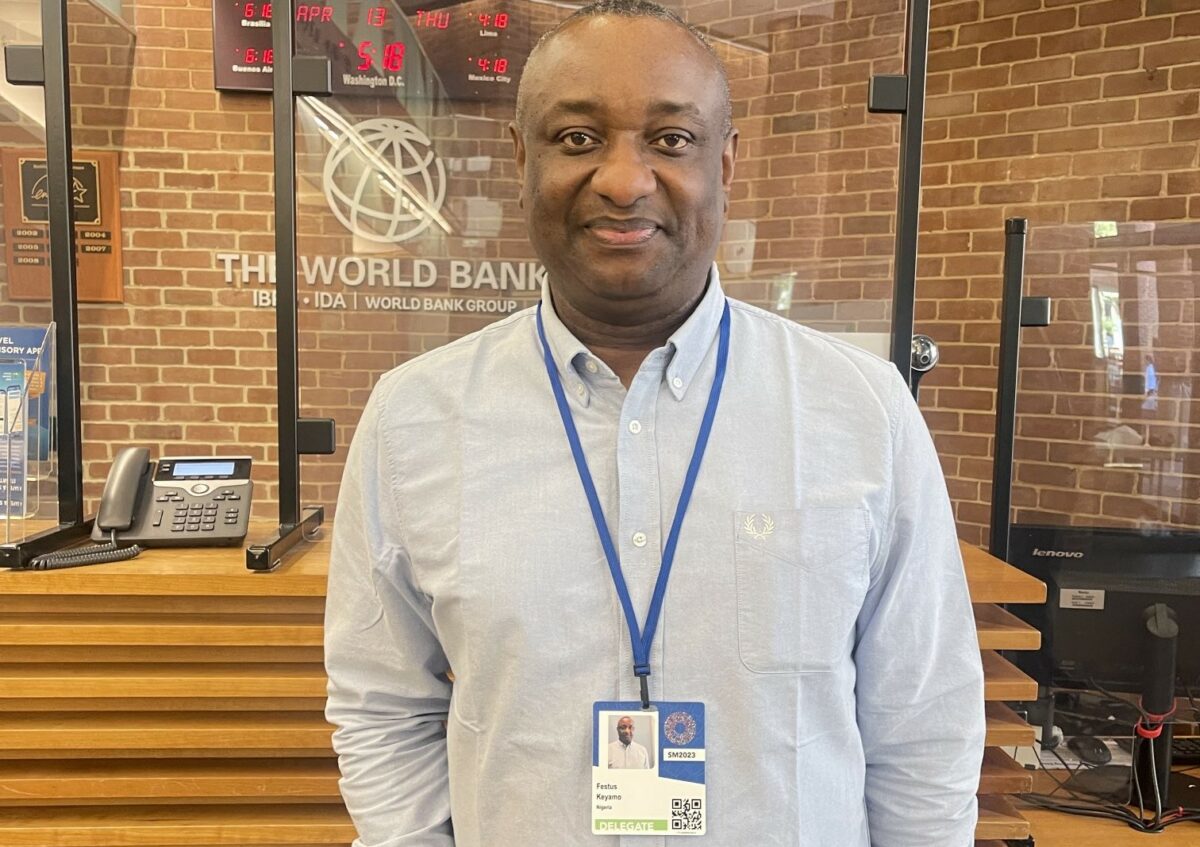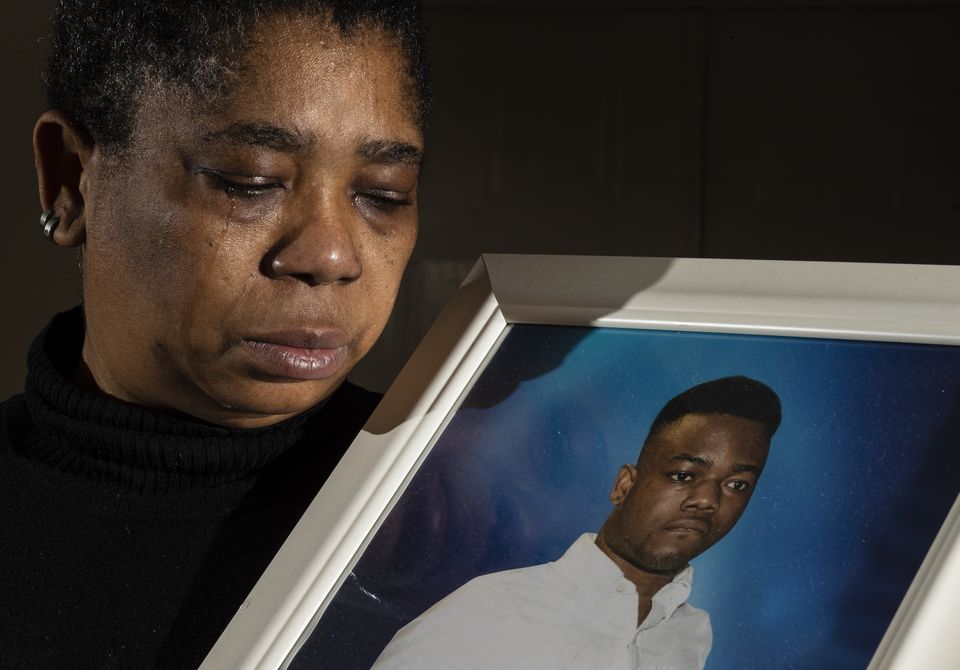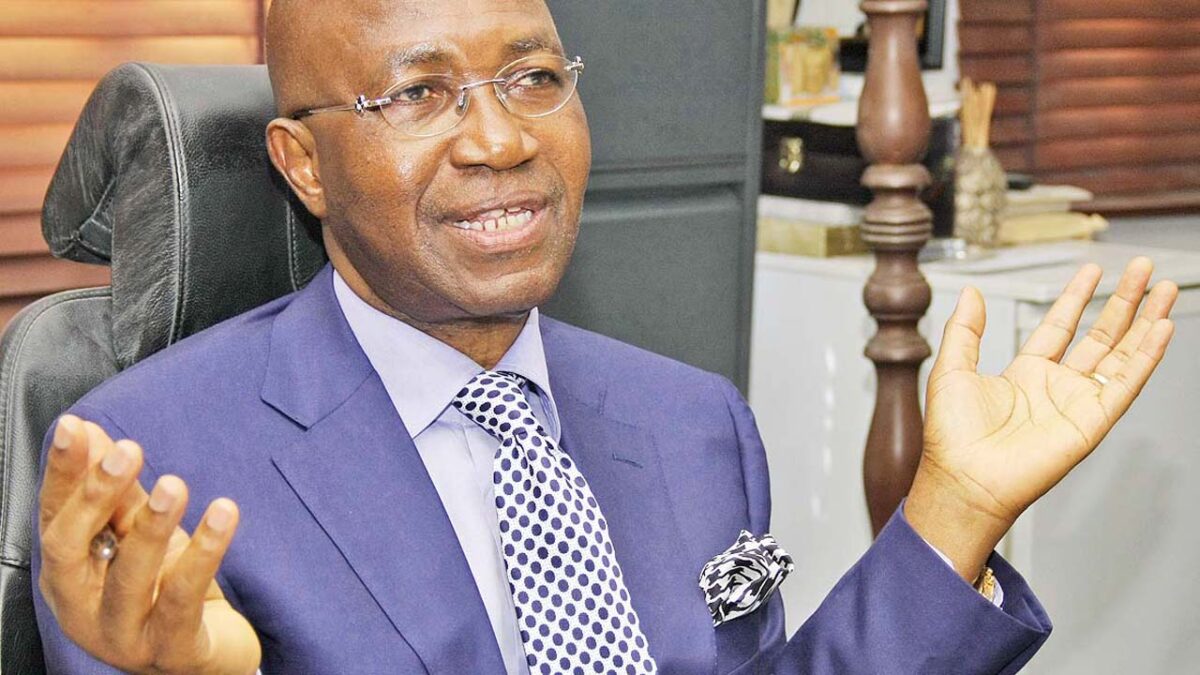Udo Jude Ilo, head of the Nigeria office, Open Society Initiative for West Africa, and Idayat Hassan, Director, Centre for Democracy and Development, West Africa, are among the panelists to discuss the role of regional bodies in addressing democracy decline in West Africa at a webinar cohosted by the Council on African Studies at Yale University, the World Fellows Program at the Jackson Institute of Global Affairs and the Yale African Students Association.
The organisers said the event would “interrogate the role of the regional organization in addressing the decline of democracy in West Africa with the aim of identifying challenges to this role and offering recommendation on how best this important task can be carried out”.
HE Juldeh Jalloh, Vice President of the Republic of Sierra Leone; HE Mohamed Ibn Chambas, Former President of the Economic Community of West Africa States (ECOWAS) and former United Nations Special Representative of the Secretary-General for West Africa and the Sahel; and Kate Baldwin, Associate Professor of Political Science, Yale University, are the other panelists.
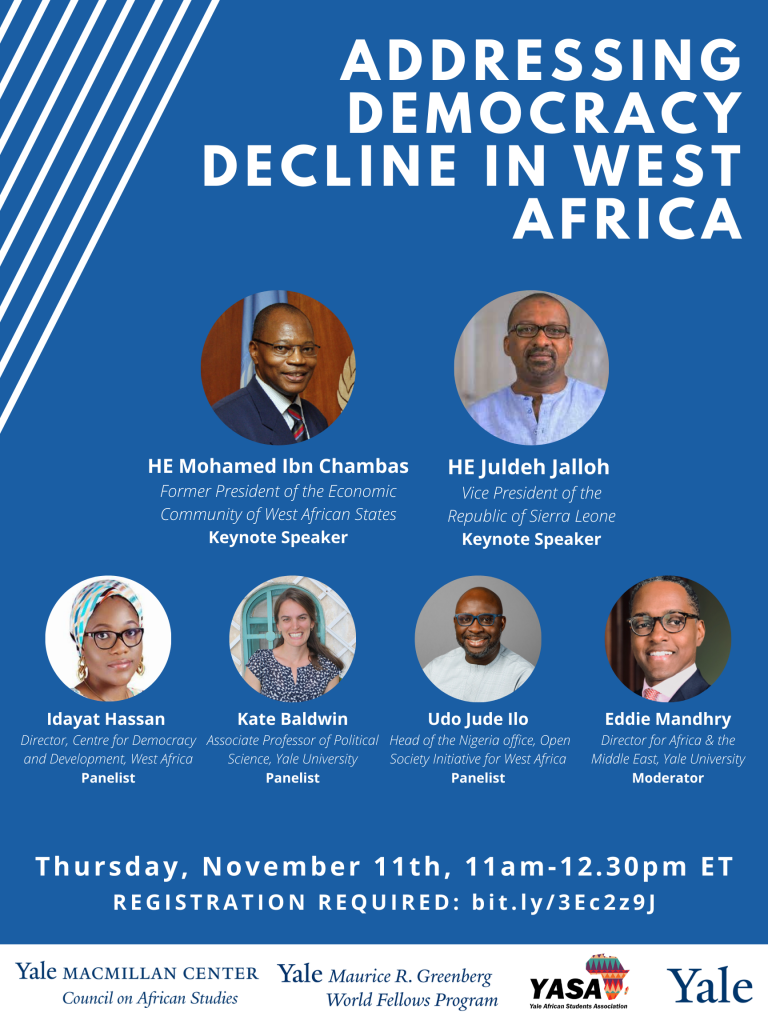
RATIONALE FOR THE WEBINAR
On September 5, 2021, the government of Alpha Conde, President of Guinea, was overthrown by Colonel Mamady Doumbouya. In Mali, roughly one year ago on August 18, 2020, the government of Ibrahim Boubacar Keïta was forced to dismiss his cabinet and eventual compelled to resign by the military. A transitional government was put in place with the leader of the military coup Assimi Goïta serving as Vice President. Ten months later, the Vice President removed the President and Prime Minister and assumed presidential powers. This will be the third coup in Mali in 10 years.
According to democracy index of the Economic Intelligence Unit (EIU), democracy declined globally in 2019. It declined in the African continent and more particularly in sub-Saharan Africa. The average score for the region fell from 4.36 in 2018 to 4.26 in 2019, the worst score in over 10 years. The index is based on five sets of criteria: electoral process and pluralism, civil liberties, the functioning of government, political participation, and political culture. In the EIU report, Senegal fell nine places and is now ranked 82nd in the world (9th in Africa), moving it down from the category of “flawed democracies” to that of “hybrid” democracies. Togo, Niger and Guinea are ranked as authoritarian while Mali, Sierra Leone, Gambia, Nigeria, Côte d’Ivoire, Burkina Faso are ranked as hybrid, halfway between authoritarian rule and democracy.
In 2020, Freedom House also reported that though authoritarianism was rising globally, the region that showed the fastest decline in political rights and civil liberties being West Africa.
Of the 12 countries with the largest year-on-year score declines around the world in 2019, no fewer than five are in West Africa — Benin, Burkina Faso, Guinea, Mali, and Nigeria. In Freedom House’s taxonomy of Free, Partly Free, and Not Free countries, Senegal and Benin fell from Free to Partly Free status, leaving Ghana and the island nation of Cabo Verde as the only Free countries in the region. For a sub-region that was once the bastion of democratic progress, the current realities are worrying.
The African Union (AU) and the Economic Community of West African States (ECOWAS), by their constituting documents and protocols, affirm the commitment of the region to promote human rights, democracy, and good governance. The AU Charter on Democracy, Election and Good Governance and the ECOWAS Supplementary Protocol on Democracy and Good Governance have clear obligations on members state to protect and promote democracy. The regional bodies (ECOWAS and AU) have been carrying out the job of promoting democracy with mixed result. The recent trajectory in the region suggest that democracy is on the reverse gear in the region.
WHAT TO EXPECT
This webinar is designed to interrogate the role of the regional organization in addressing the decline of democracy in the region with the aim of identifying challenges to this role and offering recommendation on how best this important task can be carried out.
Primarily, it hopes to bring forward perspectives from past and current leaders, and practitioners in the field who are dealing with these challenges on daily basis to provide informed analysis of what the real issues are.
“We are hoping to situate this conversation within the larger context of global democracy decline and the commonalities in challenges,” the organisers said.
The conversation, to be moderated by Eddie Mandhry, Director for Africa & the Middle East, Yale University, will hold on November 11, 2021, from 10am ET to 11:30am ET.
Subscribe
Be the first to receive special investigative reports and features in your inbox.


